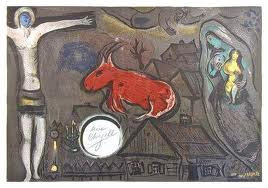Thursday, December 31, 2020
Christmas 2 B - John 1:1-18
Tuesday, December 29, 2020
Christmas 2B - Psalm 147
Monday, December 28, 2020
Christmas 2 B - Jeremiah 31:7-14
Thursday, December 24, 2020
Christmas Year B - Luke 2:1-10
Wednesday, December 23, 2020
Christmas Year B - Titus 3:4-7
Titus 3:4-7
“…when the goodness and loving kindness of God our Savior appeared he saved us…” It would be a lovely passage all by itself but is made even more beautiful by what follows “…not because of any works of righteousness that we had done, but according to his mercy…” That’s because if it were up to me I would always be wondering if I had done enough to be worthy of unconditional love. You see how silly it is? – doing something to make one worthy of what is already is. Of course what follows the beautiful bit depends on it - rebirth and renewal into the hope of eternal life – being justified by grace births us into the forever future that renewed in thought, word and deed we might live as people who are justified by grace. What goes around comes around. That is to say the goodness and loving kindness of God appears more fully in us the more we trust unconditionally that we are loved unconditionally.Tuesday, December 22, 2020
Christmas Year B - Psalm 97
Monday, December 21, 2020
Christmas Year B - Isaiah 62:6-12
Friday, December 18, 2020
Advent 4 B - Luke 1:26-38
Wednesday, December 16, 2020
Advent 4 B - Luke 1:46-55
Friday, December 11, 2020
Advent 3 B - John 1:6-8, 19-28
Thursday, December 3, 2020
Advent 2 B - Mark 1:1-8
Mark 1:1-8
The beginning of Jesus’ story anticipates the end of our story which because of Jesus will not be as final as it otherwise might have been. And like the messenger who prepared Jesus’ way through the wilderness Jesus makes straight our crooked paths so that shouts of victory will drown out cries of lament. But the end of the salvation story does not deny the hard path walked by John or Jesus. Both paid dearly for their proclamation of the truth and while resurrection is certainly a happy ending to what would have otherwise been a tragic tale, the marks of suffering remain to remind us that it was the baptism of Jesus' death that forgave our sin. So we, who benefit from John’s prophecy and baptized by the Holy Spirit are joined to Jesus’ death, walk on paths that are sometimes as hard and unyielding as the ones they walked, but because the Good News has walked all the world’s paths we never walk them alone.
Wednesday, December 2, 2020
Advent 2 B - 2 Peter 3:8-15
Tuesday, December 1, 2020
Lent 2 B - Psalm 85
We could use a long embrace with steadfast love and faithfulness and more public displays of affection between righteousness and peace. That’s because when God’s people live as “sin blotted out” forgiven folk, fortunes are restored, hearts rejoice and the land itself yields an increase. But when envy kisses bitter strife and hatred and selfish ambition embrace everyone suffers. And so God speaks peace by forgiving sin to turn hearts towards the pathway prepared by righteousness, which is always an attitude before it shows up as behavior. It would be a lovely thing if the church could fall madly in love with righteousness and peace and act like a school girl or boy giddy with the first blush of young love. Imagine what we could accomplish by throwing caution to the wind and recklessly engaging in PDA of the sort that would make those outside the faith long for the same sort of relationship we have with each other and the God who whispers, "Peace."












